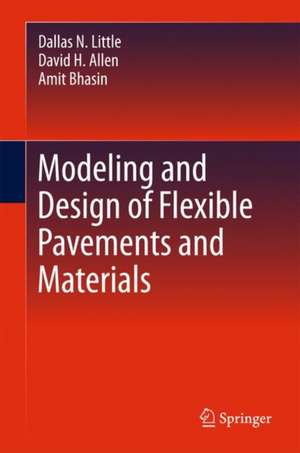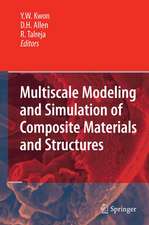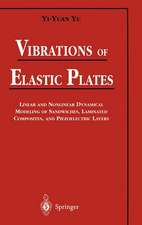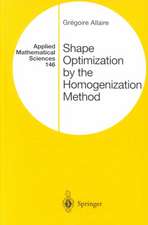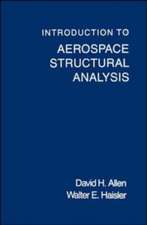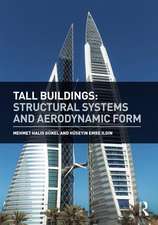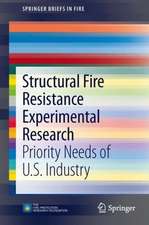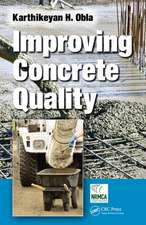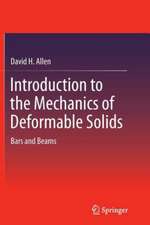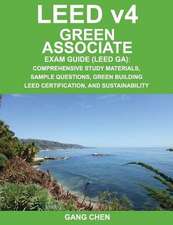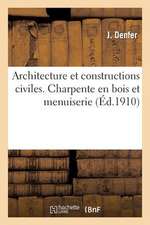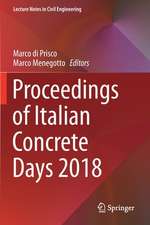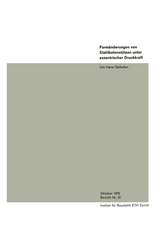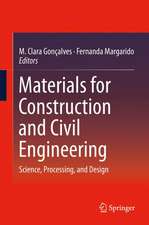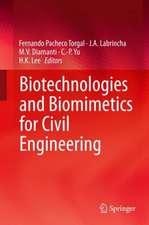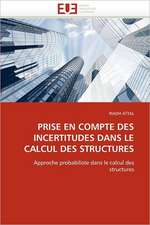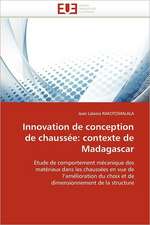Modeling and Design of Flexible Pavements and Materials
Autor Dallas N. Little, David H. Allen, Amit Bhasinen Limba Engleză Hardback – 11 oct 2017
| Toate formatele și edițiile | Preț | Express |
|---|---|---|
| Paperback (1) | 539.87 lei 38-45 zile | |
| Springer International Publishing – 17 mai 2018 | 539.87 lei 38-45 zile | |
| Hardback (1) | 1170.55 lei 3-5 săpt. | |
| Springer International Publishing – 11 oct 2017 | 1170.55 lei 3-5 săpt. |
Preț: 1170.55 lei
Preț vechi: 1427.51 lei
-18% Nou
Puncte Express: 1756
Preț estimativ în valută:
223.99€ • 239.52$ • 186.75£
223.99€ • 239.52$ • 186.75£
Carte disponibilă
Livrare economică 28 martie-11 aprilie
Preluare comenzi: 021 569.72.76
Specificații
ISBN-13: 9783319584416
ISBN-10: 3319584413
Pagini: 693
Ilustrații: XXI, 693 p. 327 illus., 167 illus. in color.
Dimensiuni: 155 x 235 x 40 mm
Greutate: 13.18 kg
Ediția:1st ed. 2018
Editura: Springer International Publishing
Colecția Springer
Locul publicării:Cham, Switzerland
ISBN-10: 3319584413
Pagini: 693
Ilustrații: XXI, 693 p. 327 illus., 167 illus. in color.
Dimensiuni: 155 x 235 x 40 mm
Greutate: 13.18 kg
Ediția:1st ed. 2018
Editura: Springer International Publishing
Colecția Springer
Locul publicării:Cham, Switzerland
Cuprins
Introduction.- Part 1. Materials.- Asphalt Binders.- Aggregates.- Surface Properties.- Additives and Modifiers.- Asphalt Mastics.- Asphalt Mixtures.- Failure Mechanisms.- Part 2. Mechanics.- Mechanics of Continuous Solids.- One Dimensional Constitutive Theory.- Elasticity and Thermoelasticity.- Viscoelasticity and Thermoviscoelasticity.- Plasticity, Viscoplasticity and Fracture.- Computational Methods for Roadway Analysis and Design.- Computational Modeling Applications.
Notă biografică
Dallas N. Little is the E. B. Snead Chair Professor and Regents Professor in the Zachry Department of Civil Engineering at Texas A&M University, where he has been a faculty member since completing his Ph.D. in 1979. Dr. Little holds an M.S. from the University of Illinois at Urbana-Champaign (1973) and a B.S.C.E. from the United States Air Force Academy in 1970. He has been a registered professional engineer since 1976.
David H. Allen is currently Director of the Center for Railway Research within the Texas A&M Transportation Institute. Prior to that he was a faculty member at Virginia Tech (1980-81), Texas A&M University (1981-2002), The University of Nebraska-Lincoln (2002-10), and The University of Texas-Pan American (2010-13). He obtained his B.S., M. Eng., and Ph.D. degrees from Texas A&M University.
Amit Bhasin is a faculty member in the Department of Civil, Architectural, and Environmental Engineering at The University of Texas-Austin. He has been in this position since 2008. He received his B. Tech. In Civil Engineering from IIT Varanasi, India, and his M.S. and Ph.D. from Texas A&M University (2003, 2006).
David H. Allen is currently Director of the Center for Railway Research within the Texas A&M Transportation Institute. Prior to that he was a faculty member at Virginia Tech (1980-81), Texas A&M University (1981-2002), The University of Nebraska-Lincoln (2002-10), and The University of Texas-Pan American (2010-13). He obtained his B.S., M. Eng., and Ph.D. degrees from Texas A&M University.
Amit Bhasin is a faculty member in the Department of Civil, Architectural, and Environmental Engineering at The University of Texas-Austin. He has been in this position since 2008. He received his B. Tech. In Civil Engineering from IIT Varanasi, India, and his M.S. and Ph.D. from Texas A&M University (2003, 2006).
Textul de pe ultima copertă
This textbook lays out the state of the art for modeling of asphalt concrete as the major structural component of flexible pavements. The text adopts a pedagogy in which a scientific approach, based on materials science and continuum mechanics, predicts the performance of any configuration of flexible roadways subjected to cyclic loadings. The authors incorporate state-of the-art computational mechanics to predict the evolution of material properties, stresses and strains, and roadway deterioration. Designed specifically for both students and practitioners, the book presents fundamentally complex concepts in a clear and concise way that aids the roadway design community to assimilate the tools for designing sustainable roadways using both traditional and innovative technologies.
Caracteristici
Covers advanced continuum mechanics in a way accessible to roadway designers Relates the fundamentals of materials science to the fundamentals of continuum mechanics in the context of roadway design and explains how each are utilized to design better roadways Provides a rigorous methodology for designing roadway materials in such a way as to optimize performance for any given conditions Details the established state of the art in experimental analysis and characterization of roadway material properties required for designing roadways Stands as a self-contained reference for understanding modern roadway computational algorithms Includes supplementary material: sn.pub/extras
